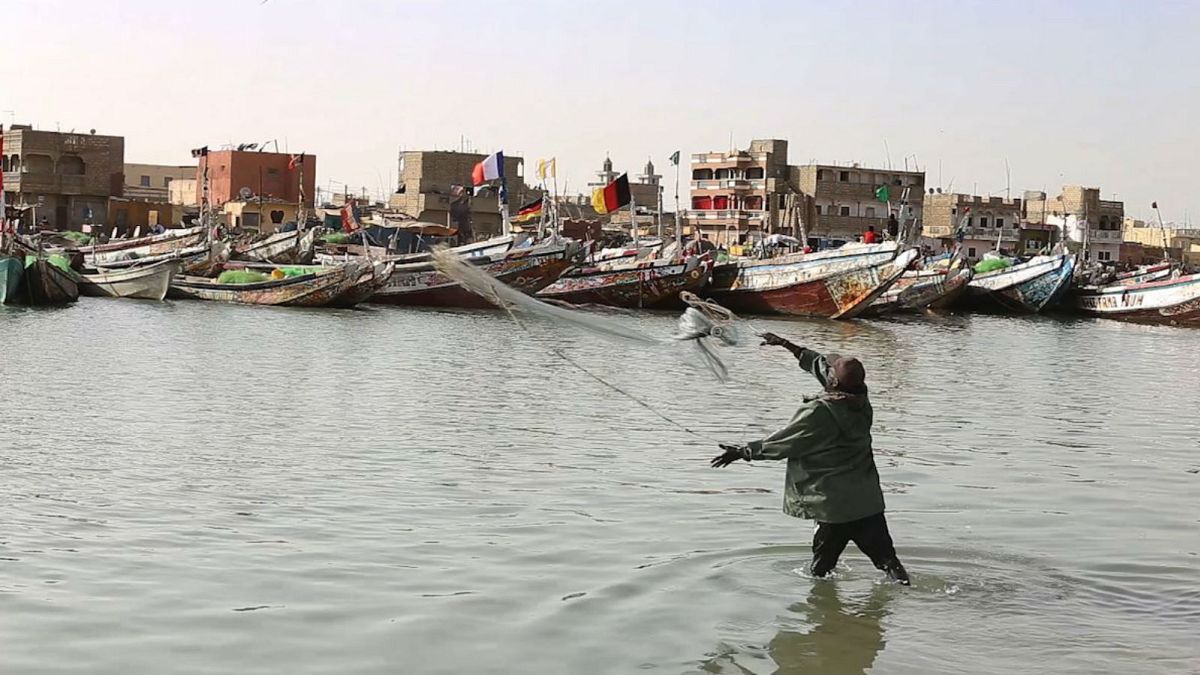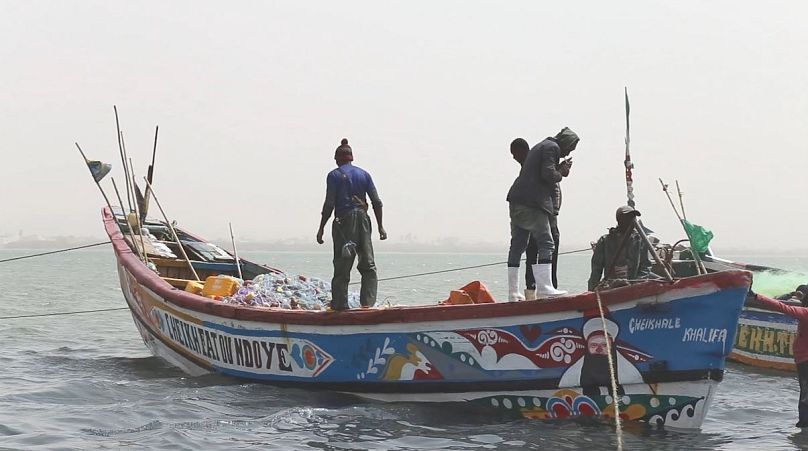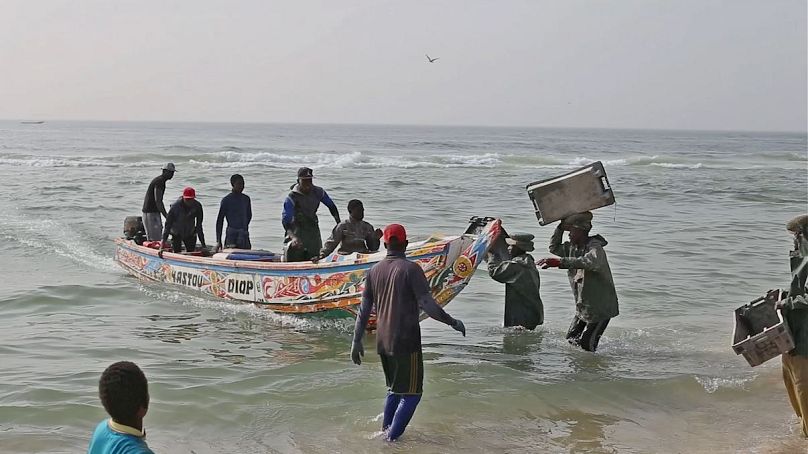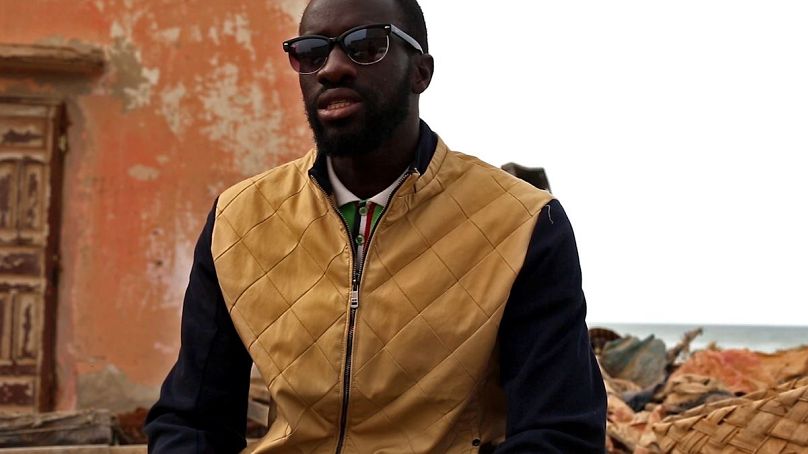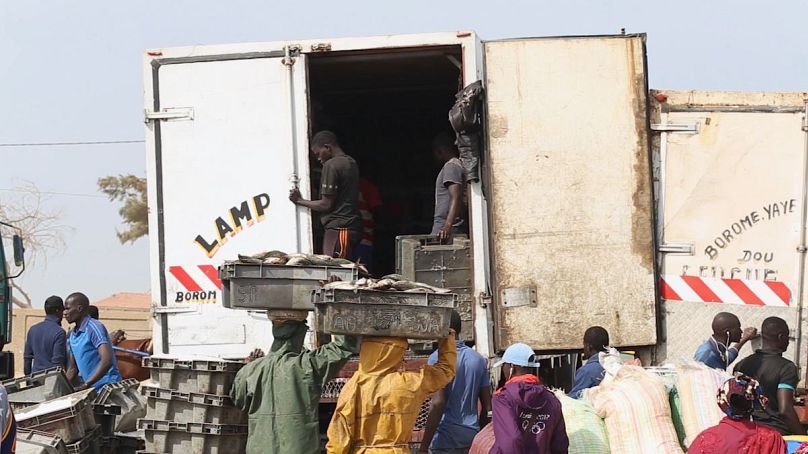For Senegal’s fishing communities, work over the last few years has been sparse — and they blame overfishing by European and other foreign companies.
Senegal's coasts are severely lacking in fish, and the country is not alone. Scientists estimate that €1.9 billion in fish are missing from local markets all over West Africa each year.
Saint-Louis is one of Senegal’s most important fishing communities where artisan fisherman use hand-crafted pirogues, and fish with nets. Still, the local fishing here is anything but small-scale; next to the port, lines of trucks stand waiting to move the day’s catch to markets all over Senegal and neighbouring countries. Only now, locals say that their fish stocks have been depleted by foreign industrial fishing.
Fishermen say they are catching only a small percentage of what they used to and they blame European and other foreign companies for overfishing. The EU is said to import over €1 billion in illegal fish products each year.
Babacar Teuw, a pirogue captain from Saint-Louis, told Euronews that years ago he used to be able to catch fish 10 to 15 kilometres off the coast. "Now there are no fish left," he said.
The problem is not just limited to the coast, as the fish feed the entire country and support a network of people who buy, sell, transport and process them.
Fish processing centres in Saint-Louis have lain idle for months, with local NGOs estimating that illegal fishing is costing the region hundreds of thousands of jobs.
The problem isn’t just illegal fishing, but also unreported and unregulated fishing by companies that do have fishing licenses.
Fishing in Senegal is a political issue. The Senegalese Ministry of Maritime Fishing, multiple European industrial fishing companies active in the country, and the UN Food and Agricultural Organization (FAO) office in Senegal, refused to comment on the matter.
But Senegalese ministry statistics confirm the worries of local fishing communities. In Saint-Louis, ministry data shows an 81% drop in fish caught since 2016.
Elhadji Ndiaye, from the Saint-Louis Regional Fishing Service, told Euronews: “If you’re talking about 2007 to 2009, there were a lot of fish here. The traders, the distributors, would take the fish they needed and leave."
"If some fish were left over, it would be thrown away," he added, "but in 2010, the fish started growing scarce”.
Ndiaye recognises that the foreign industrial fishing fleet has caused a problem for Senegal’s fish stocks, but acknowledges that their activity is difficult to regulate. Many have legal permits to fish, he says, but also engage in illegal, unreported or unregulated fishing on the side, beyond what their permit allows.
This project has been funded by the European Journalism Centre (EJC) via its Innovation in Development Reporting Grant Programme.
Music credit: CC BY-NC-SA 3.0, https://creativecommons.org/licenses/by-nc-sa/3.0/ "Creative Commons Volume. 1" by Dexter Britain, https://dexterbritain.bandcamp.com/album/creative-commons-volume-1
